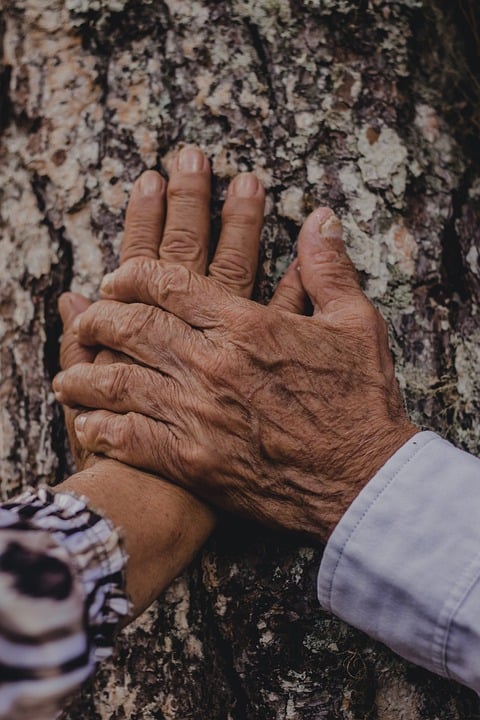The Role of Self-Love: How Loving Yourself Transforms Your Relationships
In a world that often prioritizes external validation and societal expectations, the concept of self-love can easily become overlooked. However, cultivating a loving relationship with oneself is more than just a trend; it’s a transformative journey that can fundamentally change how we relate to others. The role of self-love in interpersonal relationships is profound, impacting our emotional well-being, communication styles, and overall relational health.
Understanding Self-Love
Self-love is the practice of valuing and caring for oneself, encompassing acceptance of one’s flaws and strengths. It is not selfishness or arrogance; rather, it is a vital component of mental health. Self-love involves recognizing your worth and treating yourself with kindness, compassion, and respect. It allows individuals to form a positive self-image, leading to greater assertiveness and healthier boundaries in relationships.
How Self-Love Transforms Relationships
-
Increased Confidence and Clarity
When you embrace self-love, you cultivate a sense of confidence that positively affects your interactions. A strong sense of self-worth enables clearer communication of your needs and desires. As you learn to value yourself, you become less dependent on external validation, which frees you to engage openly and honestly in your relationships. -
Improved Boundaries
Self-love fosters the ability to establish healthy boundaries. When you respect and love yourself, you are more likely to assert what is acceptable and unacceptable in your relationships. This leads to healthier dynamics where both individuals feel valued and protected. By clearly communicating your boundaries, you create a safe space for mutual respect and understanding, ultimately enhancing the strength of your relationships. -
Emotional Resilience
Practicing self-love builds emotional resilience, enabling you to navigate the inevitable ups and downs of relationships with grace and stability. When faced with conflict or criticism, a strong sense of self allows you to respond constructively rather than reactively. You are better equipped to communicate your feelings, address issues without losing your sense of worth, and forgive more easily—both yourself and others. -
Reduced Codependency
Self-love allows individuals to break free from cycles of codependency, where one partner becomes overly reliant on the other for emotional fulfillment. By focusing on caring for yourself, you transform your relationships into partnerships where both individuals thrive independently and together. This shift fosters a healthier balance, promoting a more equitable emotional exchange. -
Better Empathy and Compassion
When you love and accept yourself, it becomes easier to extend that same kindness to others. Self-love fosters empathy; you become more attuned to your partner’s needs, feelings, and experiences. This deeper understanding creates a stronger emotional connection and a healthier relational dynamic, where both partners feel supported and validated. - Authenticity and Vulnerability
One of the most significant gifts of self-love is the courage to be authentic. When you accept yourself fully, you become less afraid to be vulnerable with others. This authenticity can deepen relationships, as it encourages others to let down their guards and connect on a more profound level. Vulnerability fosters intimacy, trust, and a sense of belonging, fortifying the bonds that hold relationships together.
Steps to Cultivate Self-Love
-
Practice Mindfulness
Engage in mindfulness practices such as meditation, journaling, or simply spending quiet time with yourself. Reflect on your thoughts and feelings without judgment. -
Affirmations
Integrate positive affirmations into your daily routine. Remind yourself of your strengths and values, and challenge negative self-talk. -
Set Boundaries
Learn to say no and prioritize your own needs. Establishing healthy boundaries is crucial for self-respect. -
Self-Care
Engage in self-care practices that nourish your body and mind. This could include exercise, healthy eating, adequate sleep, or hobbies that bring you joy. - Seek Support
Don’t hesitate to seek professional support, whether through therapy or support groups. Surrounding yourself with positive influences can enhance your self-love journey.
Conclusion
The role of self-love in transforming our relationships cannot be overstated. As we learn to appreciate ourselves, we naturally foster healthier connections with others. Through increased confidence, emotional resilience, and improved empathy, self-love lays the foundation for authentic and fulfilling relationships. By dedicating time and effort to nurture our relationship with ourselves, we open the door to deeper, more meaningful connections with those around us, creating a ripple effect that can positively impact our communities and society as a whole. Embrace self-love, and watch how it enriches your life and the lives of those you care about.
For further insight on the importance of self-love and its impact on relationships, refer to [modern_footnote_source_link].


























Add Comment